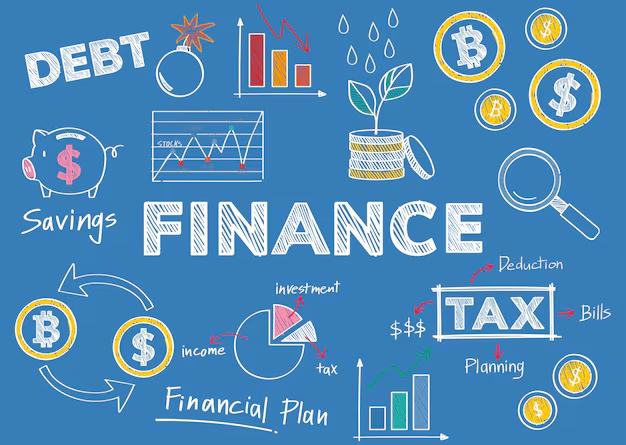Mastering Personal Finance: A Guide To Building Wealth And Achieving Financial Freedom
In today’s fast-paced world, mastering personal finance is one of the most empowering skills you can acquire. Financial freedom isn’t just about having a lot of money; it’s about having control over your finances and making your money work for you. With the right knowledge and strategies, anyone can achieve financial independence, live stress-free about money, and build wealth that lasts.
Personal finance involves budgeting, saving, investing, debt management, and planning for future goals. When done right, these strategies not only lead to wealth accumulation but also provide the freedom to live life on your own terms.
In this article, we will discuss how to master personal finance, understand key principles of wealth-building, and explore strategies to achieve financial freedom. Along the way, we’ll answer some common questions about personal finance to guide you on your journey toward financial success.
Chapter 1: Understanding Personal Finance
What is Personal Finance?
Personal finance refers to the way individuals manage their money, including budgeting, saving, investing, and planning for retirement. It also involves managing debts, paying taxes, and ensuring you have the right insurance coverage. Mastering personal finance is not just about saving but making educated decisions that enable you to grow your wealth over time.
The Five Pillars of Personal Finance
- Budgeting and Tracking Expenses
Budgeting is the foundation of any strong financial plan. Without a clear understanding of where your money is going, it’s nearly impossible to make informed decisions about savings and investments. The 50/30/20 rule is a popular budgeting strategy that recommends allocating 50% of your income to needs, 30% to wants, and 20% to savings and debt repayment. - Saving and Emergency Funds
Saving is crucial to financial stability. You should aim to have an emergency fund that covers 3-6 months of living expenses. This fund ensures that you won’t fall into debt during unexpected situations like job loss or medical emergencies. - Debt Management
Debt can be a major barrier to financial freedom. Understanding how to manage and reduce debt effectively is key. The first step is to pay off high-interest debts, such as credit cards, and then move on to larger loans like student loans or mortgages. The debt snowball method, where you pay off the smallest debt first, is one popular strategy to tackle debt. - Investing for the Future
Investing is one of the most effective ways to build wealth. By investing in assets like stocks, bonds, and real estate, your money has the potential to grow exponentially over time. The earlier you start investing, the more you benefit from compound interest. - Retirement Planning
Planning for retirement ensures that you will have enough income to live comfortably after you stop working. Contributing to retirement accounts such as a 401(k) or IRA allows your investments to grow tax-deferred, and in some cases, employers may match contributions, which is essentially free money.
Chapter 2: Building Wealth
1. Start with a Strong Financial Foundation
Before you can begin building wealth, it’s crucial to lay a solid foundation. This involves:
- Living below your means: Even if you earn a high income, you won’t build wealth if you spend it all. Being frugal and controlling your spending habits is essential.
- Building a good credit score: A high credit score will open up better financial opportunities, such as lower interest rates on loans and credit cards.
- Establishing an emergency fund: Having an emergency fund ensures that you won’t need to tap into your investments or go into debt when an unexpected expense arises.
2. Create Multiple Streams of Income
Relying on a single source of income can limit your wealth-building potential. To accelerate your financial growth, consider creating multiple streams of income. These can include:
- Side hustles: Freelancing, tutoring, or starting an online business can provide extra income.
- Investing in assets: Real estate properties, dividend-paying stocks, or owning a business can generate passive income.
- Gig economy jobs: Driving for a ride-sharing service or renting out a room on Airbnb are examples of ways to earn money on the side.
3. Make Your Money Work for You
To build wealth, it’s important to make your money work for you rather than just working for money. This can be achieved through:
- Investing in the stock market: Invest in low-cost index funds, ETFs, or dividend-paying stocks. Diversifying your portfolio can reduce risk while maximizing returns.
- Real estate investments: Rental properties or REITs (real estate investment trusts) provide another avenue to generate passive income and wealth.
- Building a business: Starting a successful business can be a powerful way to build wealth. By scaling your business, you can significantly increase your income.
4. Develop Financial Literacy
The more you know about personal finance, the better decisions you’ll make. Read books, take courses, and follow blogs or podcasts dedicated to financial education. Understanding the principles of taxes, investing, insurance, and estate planning will help you make informed choices that align with your financial goals.
Chapter 3: Achieving Financial Freedom
What is Financial Freedom?
Financial freedom means that you have enough wealth and passive income to support your lifestyle without relying on a paycheck. It’s about having the ability to make choices based on what you want, not what you need to survive. Achieving financial freedom requires intentional saving, investing, and building wealth over time.
1. Set Clear Financial Goals
Setting clear, achievable goals is crucial for financial freedom. This can include:
- Short-term goals: Paying off debt, creating an emergency fund, or saving for a vacation.
- Mid-term goals: Saving for a down payment on a house or funding your children’s education.
- Long-term goals: Building enough wealth to retire early or becoming a millionaire.
Write down your goals, break them into smaller steps, and track your progress regularly.
2. Invest Consistently
Investing consistently is key to long-term wealth accumulation. Even small amounts can grow significantly over time through compound interest. The most successful investors are those who stay disciplined and invest regularly, regardless of market conditions.
3. Minimize Liabilities and Expenses
Minimizing liabilities (like high-interest debt) and controlling your spending will give you more room to save and invest. Identify areas where you can cut back, such as eating out less or reducing unnecessary subscriptions, and direct that money toward your financial goals.
4. Increase Your Income
While cutting expenses is important, increasing your income is often the faster route to financial freedom. Seek promotions, negotiate your salary, or explore additional income opportunities to accelerate your wealth-building process.
FAQs:
1. What is the first step to mastering personal finance?
The first step is to create a budget. Track your income and expenses to understand your spending habits and identify areas where you can save.
2. How do I start investing with little money?
Start by contributing to a retirement account like a 401(k) or an IRA, which often have low minimums. Consider investing in index funds or ETFs that provide diversification at a low cost.
3. How can I pay off my debt faster?
Use the debt snowball method or the debt avalanche method. The debt snowball method focuses on paying off the smallest debt first, while the avalanche method focuses on the highest-interest debt.
4. What are the best ways to build wealth?
Building wealth requires a combination of saving, investing, and creating multiple income streams. Invest in assets like stocks, real estate, or start a business.
5. How do I save for retirement?
Contribute to retirement accounts such as a 401(k), IRA, or Roth IRA. Take advantage of employer matching contributions and ensure you are consistently saving for the long-term.
6. What is financial freedom?
Financial freedom means having enough passive income to cover your living expenses, allowing you to live life on your own terms without relying on a paycheck.
7. Can I achieve financial freedom in my 30s or 40s?
Yes, with disciplined saving, investing, and the right strategies, you can achieve financial freedom at a relatively young age. It requires consistent effort and smart financial decisions.
Conclusion
Mastering personal finance is an ongoing journey that requires commitment, knowledge, and a proactive approach. By following the principles of budgeting, saving, investing, and managing debt, you can build a solid financial foundation. Creating multiple income streams and staying disciplined with your investments will accelerate your wealth-building efforts. Most importantly, financial freedom is achievable, and the steps you take today will determine your financial future.
Key Takeaways
- Budgeting is the foundation of personal finance and helps you track expenses and allocate money to savings and investments.
- Debt management is critical; focus on paying off high-interest debts first and then address larger loans.
- Investing early and consistently is one of the most effective ways to build wealth through the power of compound interest.
- Financial freedom means having enough wealth to support your lifestyle without depending on a paycheck.
- Educate yourself on financial matters to make informed decisions that align with your long-term goals.

